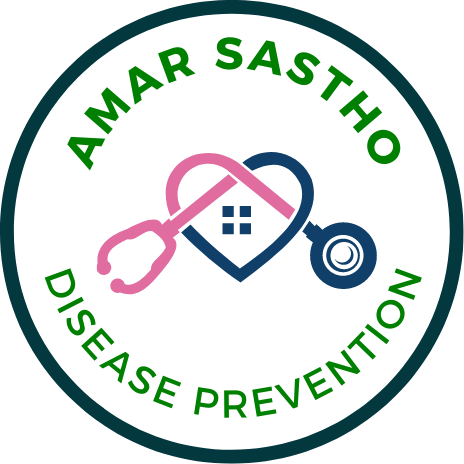We can easily prevent high blood pressure by maintaining a healthy lifestyle and healthy diet.
Exercise: Exercise can help you maintain a healthy weight and lower your blood pressure. You should try to do regular exercise at least 30 minutes to 1 hour daily. Walking, running, skipping, aerobics, yoga etc. any kind of exercise can be beneficial.
Healthy weight: Being overweight or having obesity increases your risk for high blood pressure. Maintaining a healthy weight can help you control high blood pressure and reduce your risk for other health problems also.
Managing stress: Learning how to relax and manage stress can improve your emotional and physical health and lower high blood pressure. Stress management techniques include exercising, listening to music, focusing on something calm or peaceful, and meditating.
Don’t smoke and stop consuming alcohol: Drinking too much alcohol can raise your blood pressure. It also adds extra calories, which may cause weight gain. Cigarette smoking raises your blood pressure and puts you at higher risk for heart attack and stroke.
Healthy Diet: Choosing healthful meal and snack options can help you avoid high blood pressure and its complications. Be sure to eat plenty of fresh fruits and vegetables. Eating foods low in salt (sodium) and high in potassium can lower your blood pressure. Eating a diet that is rich in whole grains, fruits, vegetables and low-fat dairy products and skimps on saturated fat and cholesterol can lower your blood pressure. Potassium can lessen the effects of sodium on blood pressure. The best source of potassium is food, such as fruits and vegetables, rather than supplements.
Few green vegetable, fruits, nuts and seeds are extremely helpful to reduce the risk of high blood pressure. Regular consumption of foods like Fig Fruit, Chia Seed, Gooseberries/Amalaki, Chives, Black Plum, Red beetroot, Mushroom, Almonds, Basil Seeds, Pumpkin Seed, Black Seed, Garlic, Ginger, Cloves, Bitter gourd, Spinach, Sweet potatoes, Walnuts, Banana, Avocado, Carrots, Cashew nuts, Moringa leaf, Cabbage, etc. can reduce the risk of high blood pressure.

